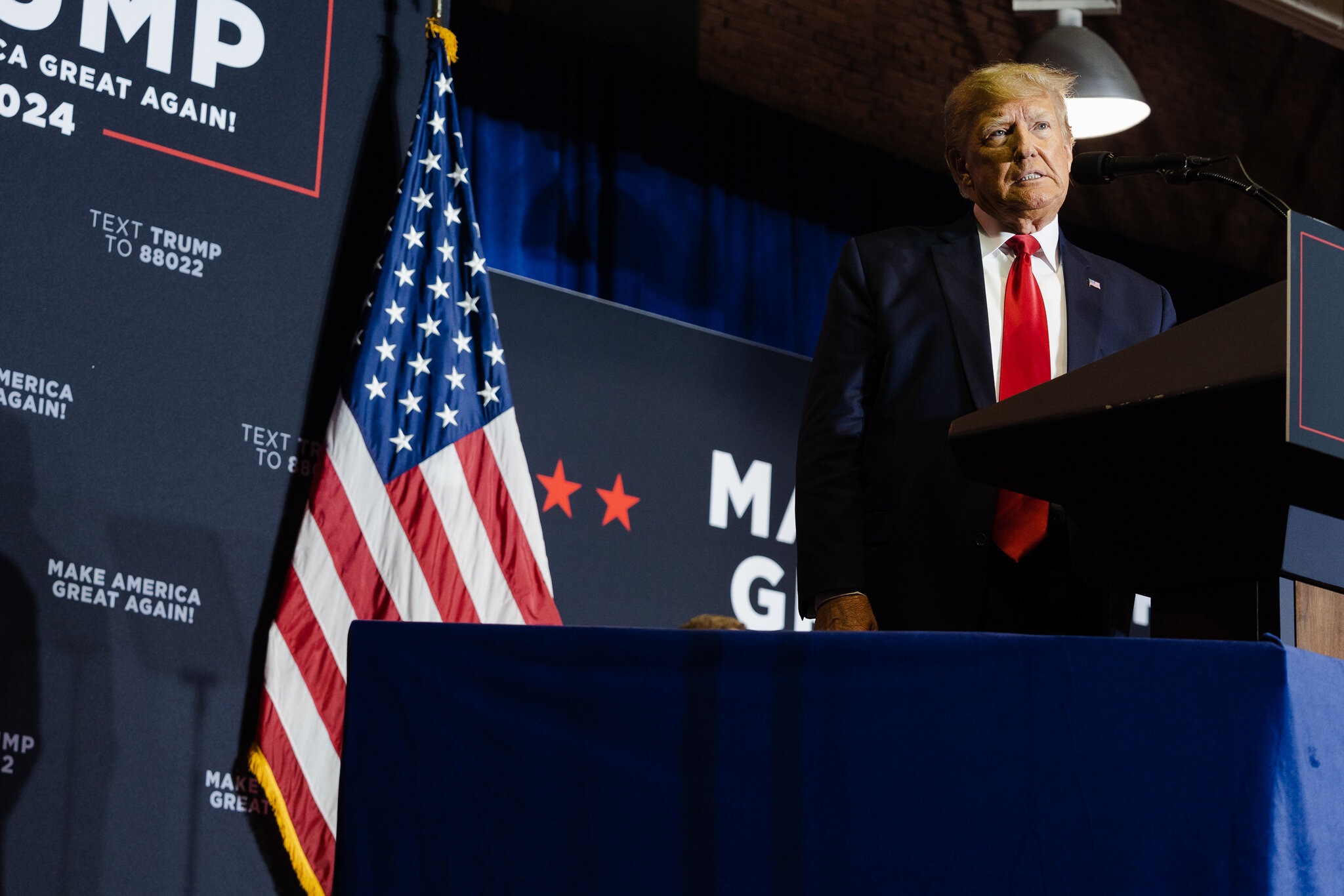As Donald Trump faced another day of damning testimony in his ongoing criminal hush-money trial, the Supreme Court listened to oral arguments regarding his attempt to establish broad presidential immunity from criminal prosecution for actions taken in office.
The case before the Supreme Court revolves around Trump’s efforts to delay or dismiss the Justice Department’s prosecution against him for his involvement in attempts to overturn the 2020 election and the January 6 riot. The court’s ruling will impact the criminal charges currently leveled against the former president.
Trump’s legal team appears to argue for an expansive interpretation of executive immunity, suggesting that even actions like political assassinations could potentially fall under its protection.

Donald Trump (Credits: AP News)
When questioned by Justice Sonia Sotomayor about a hypothetical scenario involving the president ordering an assassination, Trump’s attorney, D. John Sauer, indicated that such an act might qualify as an official act shielded by immunity.
In another hypothetical scenario raised by Justice Elena Kagan involving the sale of nuclear secrets to a foreign adversary, Sauer maintained that this, too, could be considered an official act requiring impeachment before criminal prosecution.
Sauer even suggested that a president might be immune from prosecution for orchestrating a coup against the government, depending on the circumstances, further highlighting the broad scope of immunity being advocated.
However, the justices expressed skepticism about unchecked presidential immunity, questioning the potential consequences of allowing the president to commit crimes without facing repercussions.
During the questioning of DOJ lawyer Michael Dreeben, conservative justices raised concerns about prosecutorial overreach and the need to prevent abuse of power. Dreeben emphasized that criminal prosecution would not result from mere mistakes but rather from intentional wrongdoing.
In an intriguing moment, Justice Amy Coney Barrett pressed Dreeben on the DOJ’s case against Trump, particularly regarding integrating personal and official conduct in the indictment. Surprisingly, Trump’s attorney declined to offer a rebuttal, a rare occurrence in Supreme Court proceedings, signaling the gravity of the case.
Donald Trump (Credits: EL PAÍS English)
Trump, absent from the Supreme Court hearing due to his presence as a defendant in Manhattan court, expressed disappointment at being unable to attend and accused the judge of prioritizing his own authority over the Supreme Court.
The case originated from a D.C. Federal Court of Appeals ruling that rejected Trump’s claims of immunity, emphasizing that he is subject to criminal prosecution like any other citizen.
Despite Trump’s vocal insistence on immunity, his legal team seems prepared for potential rejection by the Supreme Court, with some advisers already celebrating their success in delaying the DOJ’s case.